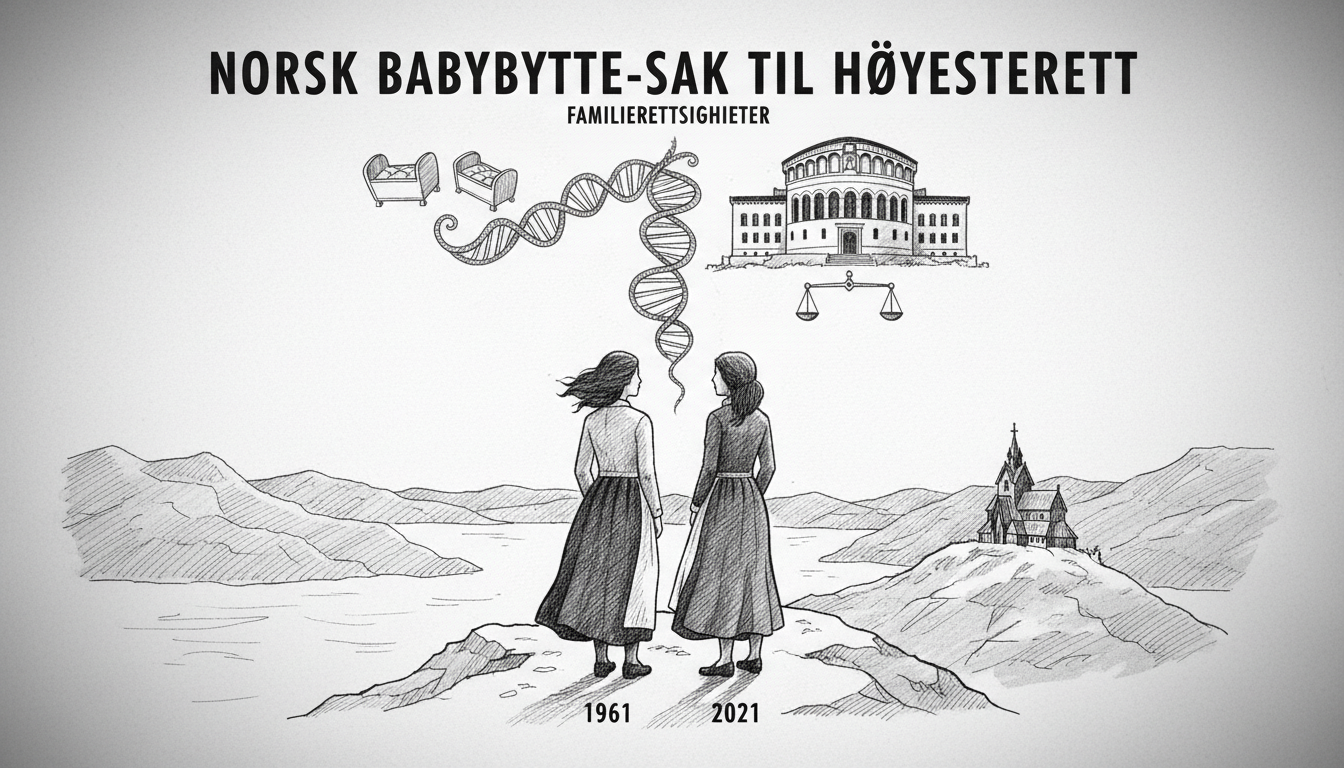Two women at the center of Norway's baby switch case are taking their legal battle to the country's highest court. Karen Rafteseth Dokken and the daughter she raised have both filed appeals with the Supreme Court after losing their case against the state in the appeals court.
The case involves two infants switched at birth sixty years ago at a private maternity clinic in Herøy, Sunnmøre. The babies grew up with each other's biological parents without anyone discovering the mistake for decades.
One woman's mother first suspected something was wrong in 1981 when she realized her daughter couldn't be her biological child. The Norwegian Directorate of Health confirmed the switch in 1985 but never informed the affected families. The truth only fully emerged in 2021 through a DNA matching website.
The women's lawyer stated the appeal seeks the Supreme Court's view on this unique case involving clear violations of family life rights. Their legal representative emphasized the importance of establishing legal precedent for such extraordinary circumstances.
The appeals court previously ruled the state bore no responsibility under the European Convention on Human Rights. Judges found no basis for claiming the state breached its obligations through insufficient maternity care arrangements since the clinic operated privately without municipal or state involvement.
This Norwegian baby switch legal battle highlights ongoing questions about historical medical accountability. The case raises issues about institutional responsibility even when services operate outside direct government control.
Legal experts note the Supreme Court appeal represents a final opportunity for the women to establish state liability. The outcome could influence how Norway handles similar historical medical errors and disclosure obligations.
The women seek recognition that their fundamental rights were violated despite the passage of time. Their case tests how legal systems address wrongs discovered decades after they occurred.
The Supreme Court must now decide whether to hear the appeal. If accepted, the case could set important precedents for family law and state responsibility in Norway's legal system.

